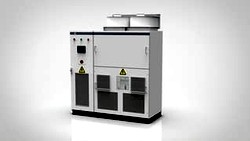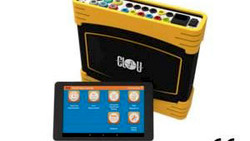As ageing grid infrastructure increasingly incorporates distributed energy resources and "smart" technologies, electric utilities are facing a complex modernization undertaking. Balancing reliability, affordability, sustainability, and customer priorities is no easy task. In this article, we look at the challenges utilities around the world continue to face as they upgrade their grid systems for the future. The here given information, gathered in the year 2023, is based on my recent observations and discussions with utility leaders from different countries.
Integrating Distributed Energy
The rise of rooftop solar, batteries, and other distributed energy resources introduces two-way power flows that traditional grids were not designed to handle. Maintaining voltage stability and power quality during intermittent generation requires strategic management. Utilities must find innovative solutions to integrate these distributed energy resources seamlessly into the grid while ensuring reliable and efficient operation.
Enhanced Situational Awareness
With the advent of a more decentralized and digital grid, utilities are faced with a deluge of real-time data from smart meters, sensors, and IoT devices. Gaining accurate visibility into distribution system dynamics becomes crucial for pinpointing faults, optimizing operations, and making informed decisions. This demands robust utility data analytics capabilities to process and derive actionable insights from this vast amount of information.

(symbol image, credit CLOU)
Interoperability Challenges
As grid modernization incorporates equipment from multiple vendors, utilities encounter the challenge of ensuring seamless communication between new and legacy grid components. Standardizing interfaces and protocols for interoperability remains a work in progress. Collaborative efforts between utilities, industry stakeholders, and regulatory bodies are essential to establish common standards, enabling effective integration and interoperability across the grid infrastructure.
Funding Modernization Costs
Building out advanced grid functionalities, such as automated distribution, predictive maintenance, and demand response, requires substantial investments. Utilities must navigate the financial landscape and devise innovative funding models to finance these improvements within existing regulatory frameworks. Exploring partnerships, leveraging public-private collaborations, and considering alternative financing options can help utilities overcome the financial barriers associated with grid modernization.
Workforce Transformation
Digitalization is transforming many traditional utility job roles. It's important to retrain and upgrade existing staff members to keep up with the changing technology landscape. Moreover, cultivating specialized skill-sets, such as software engineering and data analytics, is crucial to meet the demands of grid modernization. Utilities need to invest in training programs, collaborate with educational institutions, and create a culture of continuous learning to ensure a skilled and agile workforce.
Takeaway
Navigating the challenges posed by grid modernization is essential for utilities to create a resilient, sustainable, and customer-centric energy future. By integrating distributed energy resources, enhancing situational awareness, addressing interoperability challenges, finding innovative funding models, and embracing workforce transformation, utilities can pave the way for a modernized and efficient grid system. Collaboration, innovation, and adaptability are key to overcoming these challenges and achieving a successful transition towards a smarter energy landscape.
As utilities embark on their grid modernization journeys, it is crucial to recognize and address these challenges head-on. By doing so, they can unlock the full potential of a modernized grid that supports renewable energy integration, enhances reliability, improves customer satisfaction, and contributes to a sustainable energy future.
f you have any inquiries or need further information about grid modernization or how we can support your specific needs, please do not hesitate to reach out to us. Our team of experts at CLOU is here to assist you and provide tailored solutions for your grid modernization activities. We also welcome your valuable thoughts and comments.
Thank you for reading, and until next time, keep shining bright like a solar panel on a sunny day!





All comments are moderated before being published. Inappropriate or off-topic comments may not be approved.